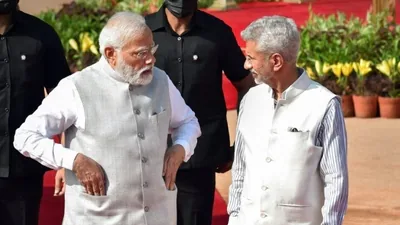
The relationship between India and Canada has taken a turn for the worse after Canada asked India to waive diplomatic immunity for six diplomats, including High Commissioner Sanjay Kumar Verma, to be interrogated by the Royal Canadian Mounted Police regarding the murder of Hardeep Singh Nijjar, a Canadian Sikh separatist ¹.
A Murder that Sparked Tension
Nijjar, a prominent figure in the Khalistan movement, was shot and killed on June 18, 2023, outside a Sikh temple in Surrey, British Columbia. The Indian government has denied any involvement in his death, but Canadian Prime Minister Justin Trudeau has pointed to “credible allegations” of Indian government agents being linked to the murder [1).
India’s Furious Response
The Narendra Modi government has withdrawn its High Commissioner Sanjay Verma and five other diplomats from Canada, accusing Trudeau of defaming India to appease his Sikh vote bank. India refuses to submit to Canada’s demands, citing diplomatic parity and immunity [1).
Escalating Diplomatic Tensions
The Canadian communique, delivered to India’s High Commission in Ottawa and the Indian government in Delhi, has been criticized for its harsh language, reminiscent of the Cold War era. Pro-Khalistani activists have also targeted Indian diplomats, burning an effigy of High Commissioner Verma in Vancouver [1).
India’s Demands for Proof
National Security Adviser Doval has demanded that Canada provide concrete evidence of Indian involvement in Nijjar’s murder, rather than relying on “political rhetoric.” India warns that any further Canadian actions will be met with equal or greater response [1).
The Khalistan Movement
The Khalistan movement seeks an independent Sikh state, with supporters in Canada and other parts of the Sikh diaspora. Nijjar was a key figure in this movement, leading the Guru Nanak Sikh Gurdwara in Surrey and advocating for Sikh separatism [1).
Nijjar’s Controversial Past
Nijjar faced allegations of militant activities and was placed on Canada’s No Fly List in 2016. He denied these claims, stating he advocated peaceful means for achieving Khalistan [1).
Canada’s Investigation
The Royal Canadian Mounted Police have arrested three Indian nationals in connection with Nijjar’s murder, but the investigation is ongoing, with potential links to the Indian government still being explored [1).
Diplomatic Fallout
The expulsion of Indian diplomats from Canada and the withdrawal of Indian diplomats from Canada mark a significant downturn in relations between the two nations. The situation remains volatile, with no clear resolution in sight.
A Complex Web of Allegations
As tensions escalate, it becomes increasingly challenging to unravel the complex web of allegations and counter-allegations surrounding Nijjar’s murder and the involvement of Indian government agents.
A Wait-and-See Approach
The international community watches with bated breath as the situation unfolds, awaiting concrete evidence or a resolution to the diplomatic standoff between India and Canada.